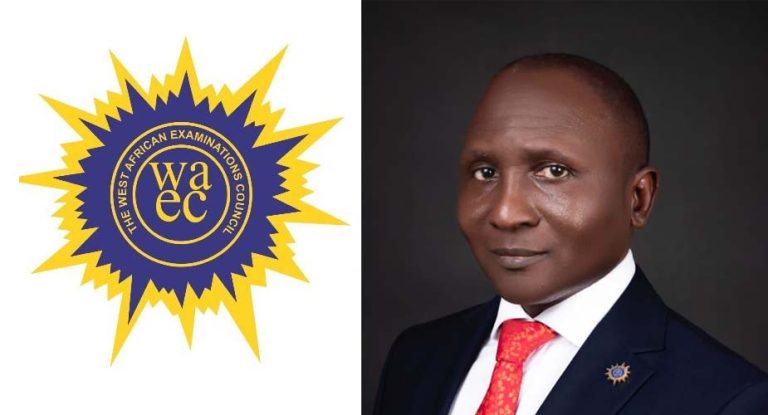By Theresa Moses

The West African Senior School Certificate Examination (WASSCE), 2024, for School Candidates, conducted by the West African Examinations Council (WAEC), has recorded a 4.37 per cent decline in examination malpractice.
According to Dr Amos Josiah Dangut, Head, WAEC Nigeria National Office, only 11.92 per cent of candidates were implicated in various forms of malpractice, a notable reduction from the 16.29 per cent recorded in 2023. This positive development signifies strong efforts made by WAEC and other stakeholders to curb dishonesty in examinations and its broader implications for Nigeria’s education sector and economy.
The decline in examination malpractice can be attributed to several stringent measures implemented by WAEC. These include tighter monitoring of examination centres, use of technology to detect and prevent cheating, and severe penalties for those caught in the act. For instance, the Council’s collaboration with law enforcement agencies has resulted in the arrest and prosecution of rogue website operators and school officials involved in the illegal act.

Also, the introduction of digitised platform for capturing candidates’ scores in real time has not only improved the accuracy of results but also made it easy to detect fraudulent activities.
Dr Dangut stressed that integrity of the examination process is crucial for the credibility of results which, in turn, has significant implications for the education sector and the economy. By reducing the incidence of exam malpractice, WAEC is ensuring that students are being assessed strictly on merit, thus upholding the value of the WASCE certificates.
The decline in examination malpractice is a big win for the education sector in Nigeria. It reinforces the credibility of the WASSCE and ensures that only deserving students are accepted and progress to higher education levels. This credibility is essential for Nigerian educational institutions to maintain standards, both locally and internationally. When universities, polytechnics, colleges of education, and employers have confidence in the integrity of WASCE results, it strengthens the education system as a whole and the quality of graduates entering the workforce.
Additionally, the fight against malpractice promotes a culture of honesty and hard work among students. When students know that cheating is not an option, they are more likely to focus on their studies, leading to better academic performance. This shift in mindset is crucial to the development of a generation of young people who are not only academically competent but also morally and ethically sound.
The economic impact of the decline in examination malpractice is multifaceted. First, it improves the quality of the workforce. With more students genuinely achieving their qualifications, employers can have more confidence in the skills and knowledge of the graduates they hire. This confidence can boost productivity and innovation in the economy, as employees are better equipped to perform their roles more effectively.

In addition, the decline in examination malpractice can reduce costs associated with re-administering exams, investigating fraudulent activities, and dealing with the legal consequences of misconduct. These savings can be redirected towards improving the quality of education, such as investing in better teaching materials, facilities and training for teachers.
Furthermore, as Nigeria continues to improve the credibility of its educational certificates, it can attract more international students and partnerships, thereby boosting economic growth. Countries and institutions worldwide often commit to an educational system that consistently demonstrates high standards and integrity.
Despite the progress made so far, Dr Dangut acknowledged that challenges remain. The persistent use of mobile phones in exam halls and organised cheating in some schools are issues that need constant monitoring. However, it is hoped that these challenges can be overcome through sustained efforts by WAEC, the government, and other stakeholders.

To sustain the gains made, there is need for continued investment in technology and training for exam supervisors and invigilators. Also, public awareness campaigns by the National Orientation Agency (NOA), the Broadcasting Organisation of Nigeria (BON), etc, can help reinforce the importance of integrity in examinations, both for parents, students and educators.
In conclusion, the decline in examination malpractices in the 2024 WASSCE for School Candidates is a promising sign for Nigeria’s education and economy. By maintaining the integrity of its examinations, WAEC not only safeguards the future of Nigerian students but also contributes to the overall development of the nation as a whole. The benefits of these efforts will be felt across various sectors of the economy as honest and capable professionals emerge that will drive Nigeria’s growth and prosperity.
Share your story or eyewitness reports with Gatmash News, www.gatmash.com anytime, anywhere! Reach us via SMS/Whatsapp: +234(0)8072022024 or email: [email protected]
Follow us on X (formerly Twitter), Instagram, Facebook @Gatmash, and subscribe to Gatmash TV on YouTube.
As a leading news portal, we deliver exclusive breaking news and reports globally. Visit our website: www.gatmash.com
For ad placement, contact us at [email protected] or call +234(0)8072022024.
Join the conversation and stay informed with Gatmash News!





